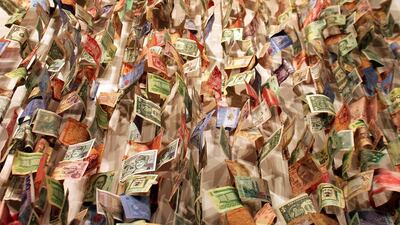Your money can do more than buy you things. And a growing group of consumers is demanding that financial providers take steps to make sure it does. In fact, according to one study by Deloitte about Millennial attitudes, 87 per cent of them think that the success of a business should be judged on more than just its financial performance.
As individuals, the money that goes in and out of our accounts – even when we are not using it directly – is one of our most powerful assets and we can use it for social good. We just need to put a little thought into where and how we keep it.
We’re all getting attuned to ethical and organic products being available in our shopping centres and supermarkets. These are grown or produced in more ethical ways, and by companies that are increasingly rigorous about the supply chain. Money is a crucial part of that supply chain.
It’s one of the reasons that ethical banking is slowly emerging as an important force. Ethical finance can be powerful in the retail area, offering consumers the kind of transparency they seek from an industry that has been tainted by scepticism. It can also offer better approaches to risk sharing. But the investment side of such banking -- what goes on behind the scenes -- also seeks to abide by ethical principles too, avoiding industries it perceives as harmful, and eschewing high-risk investments.
In the Middle East – and in other places around the world – such values-based finance has been present for decades and goes by a more familiar name, Islamic finance.
Yet the label "Islamic" often leaves consumers wondering how Islamic and conventional banking can co-exist in one bank.
In my own anecdotal research, consumers sometimes feel that Islamic finance is just a label that’s tagged on, that interest is charged by another name, that fees are too high, that customer service is poor, that consumers who seek help to abide by their faith values are in fact simply exploited. Despite the hard work expanded in doing business ethically, this decades-long reputation is hard to dismantle. But change is already underway.
One of the board members of the Islamic Development Bank states clearly that they have to “think wider in terms of customer appeal.” And the key question is: “Why monopolise the concept [Islamic finance] and keep calling it only Islamic?”
What is eye opening is that people who are not Muslim are increasingly attracted to Islamic finance, due to its ethical principles and its transparent fee structures.
Islamic banks are realising the focus they must put on the service, quality and transparency of their business practices in order to be competitive and attractive and that the reality of their offering must deliver more than just the name "Islamic". But there’s a huge amount more that needs to be done. And as consumers, we can play our part.
The industry’s growing self-awareness comes exactly at a time when consumers are becoming aware that they can take control of their money.
What we as consumers can do is ask our banks about their ethical stance. Banks don't need to be the aloof Wall Street behemoths of Hollywood movies, or of terrifying bank managers. Instead, they can be a social institution that plays an important role in the life of local and global communities. In fact, we should fully expect the organisations to live up to our economic aspirations and play a part in the financial health of our societies. It's your money -- make sure the bank does with it what you want.
Shelina Zahra Janmohamed is the author of Generation M: Young Muslims Changing the World


